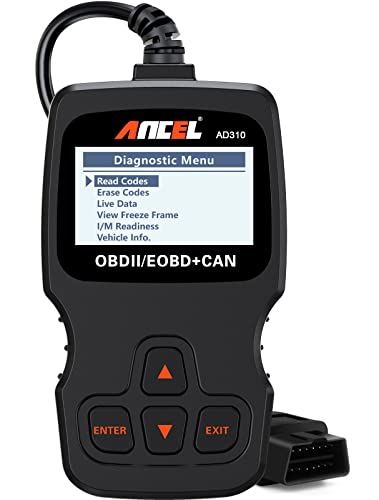Nothing disrupts a drive like a pungent smell filling your car’s cabin. If that smell happens to be reminiscent of rotten eggs, it’s not just unpleasant—it could be a sign of underlying mechanical issues. This article aims to address the critical questions concerning this disturbing aroma: why it occurs, if it’s safe to continue driving, and how to eradicate it.
Why Does My Car Smell Like Rotten Eggs?
The most likely reason for your car smelling like rotten eggs is the presence of hydrogen sulfide. This malodorous gas is a byproduct of the sulfur present in the fuel and is often described as smelling like rotten eggs. The most likely cause of this is a malfunctioning catalytic converter that’s failing to convert hydrogen sulfide into sulfur dioxide.
Under normal conditions, your vehicle’s catalytic converter should efficiently convert this hydrogen sulfide into less offensive sulfur dioxide. However, when the converter is faulty, this conversion process can be compromised, leading to that unmistakable smell. While the catalytic converter is often the main offender, other problems such as a malfunctioning fuel pressure sensor, worn-out fuel filter, battery issues, or a transmission fluid leak can also contribute to the problem.
Affiliate Disclosure: Thank you for supporting The Road Trip Expert. When you purchase through links on this site, we may earn an affiliate commission. Please see our advertising disclosure for more details.
Can I Drive My Car if It Smells Like Rotten Eggs?
Driving your car when it smells like rotten eggs is generally not advised. The smell indicates a malfunction in your vehicle, which could be minor or severe. Ignoring it not only makes for an unpleasant driving experience but could also lead to more serious mechanical issues. If you encounter this smell, it’s best to diagnose and treat the problem as soon as possible.
In the case of fuel leaks, damaged batteries, or faulty exhaust systems, the risk could be as severe as a fire or toxic fume inhalation. Seek professional help to diagnose and resolve the problem as soon as you can. You don’t want to encounter unwanted engine damage as a result of ignoring the problem. Dealing with issues promptly is one of the road safety tips you don’t want to forget.
To confirm, we strongly suggest contacting a professional as soon as possible if your car smells like rotten eggs.
Common Problems That Can Cause The Smell and How to Diagnose Them
Here are some common problems that can cause the smell, what the symptoms are, and how to diagnose them.
Malfunctioning Catalytic Converter
A malfunctioning catalytic converter is often the main culprit if it fails to convert hydrogen sulfide into less smelly sulfur dioxide. If your car has a “Check Engine” light on, it might be indicating an issue with the catalytic converter.
- Symptoms: Poor gas mileage, difficulty starting and accelerating, “Check Engine” light illuminated.
- Diagnosis: Usually diagnosed with an OBD-II scanner that reads error codes from your car.
- Resolution: Replacement of the catalytic converter is usually required.
- CEL Doctor: The ANCEL AD310 is one of the…
- Sturdy and Compact: Equipped with a 2.5 foot cable…
- Accurate Fast and Easy to Use: The AD310 scanner…
Older cars with outdated or worn-out catalytic converters are especially prone to this issue. If you plan on driving an old car long distances, make sure it’s been properly serviced and maintained.
Faulty Fuel Pressure Sensor
Sometimes, a malfunctioning sensor can send incorrect fuel-to-air mixtures to the engine, causing unburned fuel to pass into the catalytic converter, which can result in a sulfuric smell. Check fuel filters and sensors if you notice the odor.
- Symptoms: Poor drivability, bad fuel usage, “Check Engine” light on.
- Diagnosis: Specialized scanner tools can diagnose this issue.
- Resolution: Replace the fuel pressure sensor.
Worn-out Fuel Filter
Like a faulty fuel pressure sensor, a worn-out fuel filter can cause an over-rich fuel condition, affecting your catalytic converter.
- Symptoms: Similar symptoms as a faulty fuel pressure sensor such as poor drivability and fuel economy.
- Diagnosis: Visual inspection and/or pressure tests can confirm this issue.
- Resolution: Replacement of the fuel filter.
Transmission Fluid Leak
If there’s a transmission fluid leak, you may also experience a rotten egg smell. Make sure to change the fluid as recommended by your car manufacturer. Transmission fluid can deteriorate over time or become contaminated, leading to a foul smell. While this rarely mimics the smell of rotten eggs, it is not entirely impossible.
- Symptoms: Foul smell, difficulty in shifting gears, transmission noises.
- Diagnosis: Visual inspection for leaks, fluid level check.
- Resolution: Seal the leak and replace the contaminated or old transmission fluid.
Battery Issues
An overcharged battery can emit a sulfuric smell because it contains sulfuric acid, which can be released as a gas if the battery is damaged or overcharged. If you notice a sulfuric smell from your battery, this could also be accompanied by swelling of the battery case or visible corrosion on the battery terminals, signs that immediate attention is needed.
- Symptoms: Sulfuric smell, possible corrosion around battery terminals.
- Diagnosis: Visual inspection, voltage test.
- Resolution: Replace the damaged battery and/or correct the charging system issue.
Engine Misfires
In some rare cases, engine misfires can cause unburned fuel to move into the catalytic converter, leading to the production of hydrogen sulfide. Beyond contributing to the rotten egg smell, engine misfires can also significantly impair your vehicle’s overall performance, potentially leading to stalling, vibrations, or even damaging other components like the catalytic converter if left unaddressed.
- Symptoms: Engine stuttering, reduced performance, “Check Engine” light on.
- Diagnosis: OBD-II scanner can usually identify misfire codes.
- Resolution: Repair may involve spark plugs, ignition coils, or other ignition system components.
Damaged Exhaust System
A bad oxygen sensor or leaks in the exhaust system can also result in this smell. In addition to causing a foul smell, a damaged exhaust system can also lead to a noticeable decrease in fuel efficiency and even trigger the “Check Engine” light, making it essential to get it inspected and repaired as soon as possible.
- Symptoms: Foul smell, louder exhaust noise, reduced engine performance.
- Diagnosis: Visual inspection and/or emissions test.
- Resolution: Repair or replace damaged parts of the exhaust system.
Other Smells That Are Cause for Concern
- Gasoline Smell: This indicates a potential fuel leak. A strong smell of gasoline inside your car is usually a warning sign that should not be ignored. This smell is often indicative of a fuel leak somewhere in the system, possibly from a loose fuel cap, damaged fuel line, or even a faulty fuel injector. If you notice this smell, it’s imperative to immediately check for visible leaks and consult a mechanic as soon as possible to identify and fix the issue. Leaking fuel is a fire hazard and poses significant risks to both your vehicle and personal safety.
- Burning Rubber Smell: This could be due to a slipped belt or loose hose. If you notice a smell that is similar to burning rubber, it’s usually a sign that something is wrong with the car’s mechanical components. Common culprits include a slipped serpentine belt or a hose that has come loose and is rubbing against parts of the engine. Over time, the friction generates heat and produces the smell of burning rubber. While not as immediately dangerous as a fuel leak, it still warrants prompt attention. Neglecting this issue can lead to more significant, and expensive, problems down the line.
- Musty Smell: Often related to mold in the air conditioning system. A musty smell emanating from your car’s air vents is commonly linked to the growth of mold or mildew within the air conditioning system. This usually occurs when moisture gets trapped in the system and becomes a breeding ground for bacteria. Aside from the unpleasant smell, this can also pose a health risk as you’re essentially breathing in mold spores every time you use the A/C. To remedy this issue, a thorough cleaning of the air conditioning system is often required. This may involve removing and cleaning the filters and using specialized cleaning agents to kill off the bacteria.
How to Remove the Rotten Egg Smell From Your Car
Address the Root Cause
The permanent solution to removing the rotten egg smell is identifying and fixing the underlying issue. It could be the catalytic converter, fuel pressure sensor, transmission fluid, or something else. Here’s how you can tackle the most common causes:
- Catalytic Converter: If the issue lies with the catalytic converter, you’ll likely need to replace it. This is a job for professionals, so schedule a visit to your mechanic.
- Fuel Pressure Sensor: A malfunctioning fuel pressure sensor may require recalibration or replacement. Again, consult your mechanic for a proper diagnosis and repair.
- Transmission Fluid: If a leaky transmission fluid is the culprit, you’ll need to patch the leak and replace the fluid. Your mechanic can guide you on the appropriate steps to take.
Temporary Measures
While you’re arranging for these repairs, these are some temporary suggestions to make driving less unbearable:
- Ventilate Your Car: Keep your windows open while driving to allow the smell to disperse. Running the fan or air conditioning can also help push the smell out of the car.
- Use Car Deodorizers: Although not a permanent solution, car deodorizers or air fresheners can mask the smell temporarily. Look for ones specifically designed to eliminate strong odors.
- Activated Charcoal: Place bags of activated charcoal in various parts of the car. Charcoal is excellent at absorbing odors and can serve as a temporary remedy.
- Coffee Grounds: A container filled with fresh coffee grounds can also act as a natural deodorizer. Place it in the car overnight to absorb the smell.
- White Vinegar: Fill a cup with white vinegar and place it in the car, letting it sit overnight. Vinegar can help neutralize odors, although you’ll then need to air out the vinegar smell.
- Baking Soda: Sprinkle baking soda on the car seats and carpet, let it sit for several hours or overnight, and then vacuum it up. Baking soda is effective at absorbing odors.
Remember, these are merely temporary solutions. For the health of your vehicle and for your own comfort, it’s important to address the underlying issue as soon as possible. Driving long distances with an underlying mechanical issue can be particularly risky. Here are some long-distance driving tips that you may find helpful.
Final Thoughts
The presence of a rotten egg smell in your car should never be dismissed as merely inconvenient or unpleasant. It’s a warning sign of underlying mechanical issues that require immediate attention. Whether it’s a malfunctioning catalytic converter, a faulty fuel pressure sensor, or any of the other issues discussed, neglecting to diagnose and resolve the problem not only compromises your comfort but could also put you and your vehicle at significant risk of harm. From potential fire hazards to the risk of complete engine failure, these are issues that can escalate rapidly.
While there are temporary solutions to mask the odor and make your driving experience more bearable, these are not substitutes for addressing the root cause. Regular maintenance and immediate professional consultation are crucial for the well-being of both your vehicle and yourself. Part of keeping your vehicle well-maintained is ensuring it’s road trip ready. Learn how to prepare your car for a road trip in our other helpful article.
Remember, your car is an intricate machine where many parts function in unison. When one component is out of sync, it could affect the whole system. Take the smell seriously, investigate the issue promptly, and keep your vehicle well-maintained to avoid facing such issues in the first place.





